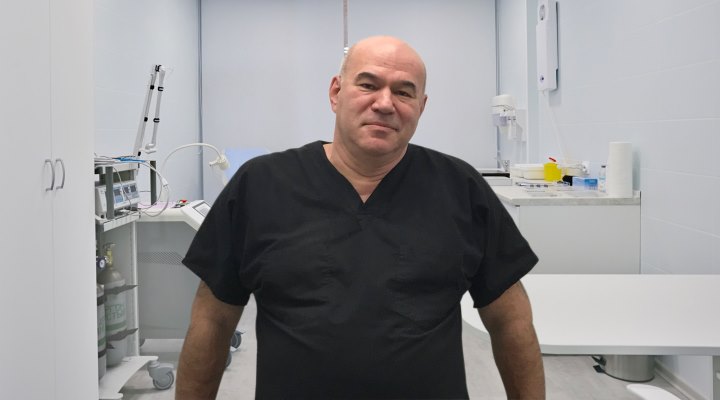Dr. Mark Filstein is an Aesthetic Plastic Surgeon in New York City. He attended the University of California at Berkeley, obtaining his B.A. in physiology and then went on to the University of California at San Francisco, School of Medicine, graduating top of his class in 1985.
Dr. Mark Filstein, together with his office staff, strives to provide his patients with a comfortable and safe environment from the first consultation with the doctor, throughout the entire surgery, to the last follow-up visit.
Cosmetic surgery is never an easy choice to make, but Dr. Mark Filstein will take the necessary time to consult with you, answer all your concerns, and most importantly, to make you look and feel your absolute best when you exit his practice.
Dr. Mark Filstein has been in private practice since 1992. Based in Manhattan, Dr. Filstein has provided cosmetic surgeries and his expertise to thousands of patients.
Dr. Mark Filstein is an active participant in “Operation Smile” and enjoys spending time with his daughter and her school activities. He also enjoys gardening and exercising.
What inspired you to become a doctor?
My uncle was a neurosurgeon during WWII. His career path and his expertise in his field definitely played a big role in inspiring me to become a doctor.
I also think people’s personalities are suited for certain pursuits. I was always handy and I think surgery goes along with that, I have always had the ability to work well with my hands. I have the habit of attention to detail. In addition, I’m not the kind of person that likes abstract long-term goals, I prefer short-term things that I can accomplish in a couple of hours, that require intense concentration. Surgery requires concentration, it requires manual skills and you can make a big difference in a short period of time.
Why did you choose to become a cosmetic surgeon and what areas exactly do you specialize in?
I initially began my career as a general plastic surgeon, but after some time, I realized my enjoyment with cosmetic surgery and decided to specialize in that field. There is a difference between the general plastic surgery and cosmetic plastic surgery. Cosmetic plastic surgery is the elective surgery people choose to look younger and better.
General plastic surgery covers a lot of disciplines and it is very difficult to be really good at all of them. Specializing in cosmetic surgery gives you an opportunity to be really good at something that is somewhat not as broad as the entire field of plastic surgery. It is also very demanding because you basically take healthy people and do an operation, the end result needs to meet a high aesthetic standard. You have to put in some of your own aesthetic judgment and maneuver skills.
What is your daily routine like as a cosmetic surgeon?
I begin every day very early in the morning. Typically, I schedule the surgeries with my staff in the morning and I start I operating until lunch. After I finish my lunch break, I see patients in the afternoon and possibly develop new cases for new procedures.
When you look forward in your career, what is a trend in medicine that you see impacting your specialty the most? Is this better or worse to you, and why?
There are a couple of things. The most important one is a decrease in reimbursement for physicians. This in turn motivates them to “fees for service” and by extension, cosmetic surgery.
What aspect of your job do you love most?
It’s very satisfying to do something well and people are pleased about it and happy with the results. It gives you a lot of satisfaction. Being a cosmetic surgeon for years, it still brings me great joy when a patient is happy with the end results and appreciates all that you have done for them.
What would you consider to be the proudest accomplishment of your career?
I have been working with “Operation Smile” for over 20 years, they do cleft-lip and palate surgeries for various third world countries. I have been participating with them since as early as 1992. They usually do one trip every year or every other year. That has been very gratifying. It’s voluntary surgical teams that go to various locations and do cleft lip and palate surgery for children.
Do you have any other volunteer activities that you’re involved in?
I volunteer as a class parent and take trips with my daughter’s school around the city.
What do you do in order to mentally separate yourself from your job?
Nothing, really. Just concentrate on my family. Sometimes I share successful stories with my family, but I try not to bring work home.
Where do you want to be in your career in the next five years?
I want to continue performing well in my career and perfect every aspect of my practice. Also, I want to keep the internal marketing going. What I mean by that is to stay in touch with previous patients and they in turn, may come back for another procedure, or refer people. I have to always keep in mind that the economy plays a part, too. When the economy is not good, people don’t do much cosmetic surgery.
What sets you apart from other cosmetic surgeons?
I’m meticulous and technically proficient. I have steady judgment and I’m empathetic.

